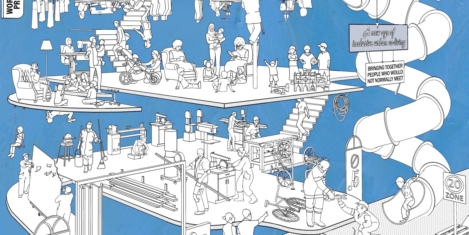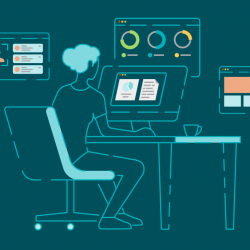March 31, 2022
Firms must do more to earn the commute of hybrid workers
 Steelcase has released a new global research report which reveals that outdated offices are no longer conducive to employees’ shifting needs for greater control, comfort, and privacy. The study found that if a workplace was made more in tune with shifting expectations, staff were more engaged, productive, connected to their organisation’s culture and less likely to leave. The Steelcase report, The New Era of Hybrid Work, surveyed nearly 5,000 workers in 11 countries. The findings reveal that whilst 87 percent of respondents now spend at least some of their time working from the office as the threat of the pandemic recedes, six in ten (58 percent) prefer working from home. One of the most appealing attributes of a home for two-thirds (65 percent) of UK employees is that they have a dedicated space for work. Whereas in the office, the majority (59 percent) have desks in open areas, with minimal privacy. (more…)
Steelcase has released a new global research report which reveals that outdated offices are no longer conducive to employees’ shifting needs for greater control, comfort, and privacy. The study found that if a workplace was made more in tune with shifting expectations, staff were more engaged, productive, connected to their organisation’s culture and less likely to leave. The Steelcase report, The New Era of Hybrid Work, surveyed nearly 5,000 workers in 11 countries. The findings reveal that whilst 87 percent of respondents now spend at least some of their time working from the office as the threat of the pandemic recedes, six in ten (58 percent) prefer working from home. One of the most appealing attributes of a home for two-thirds (65 percent) of UK employees is that they have a dedicated space for work. Whereas in the office, the majority (59 percent) have desks in open areas, with minimal privacy. (more…)



































